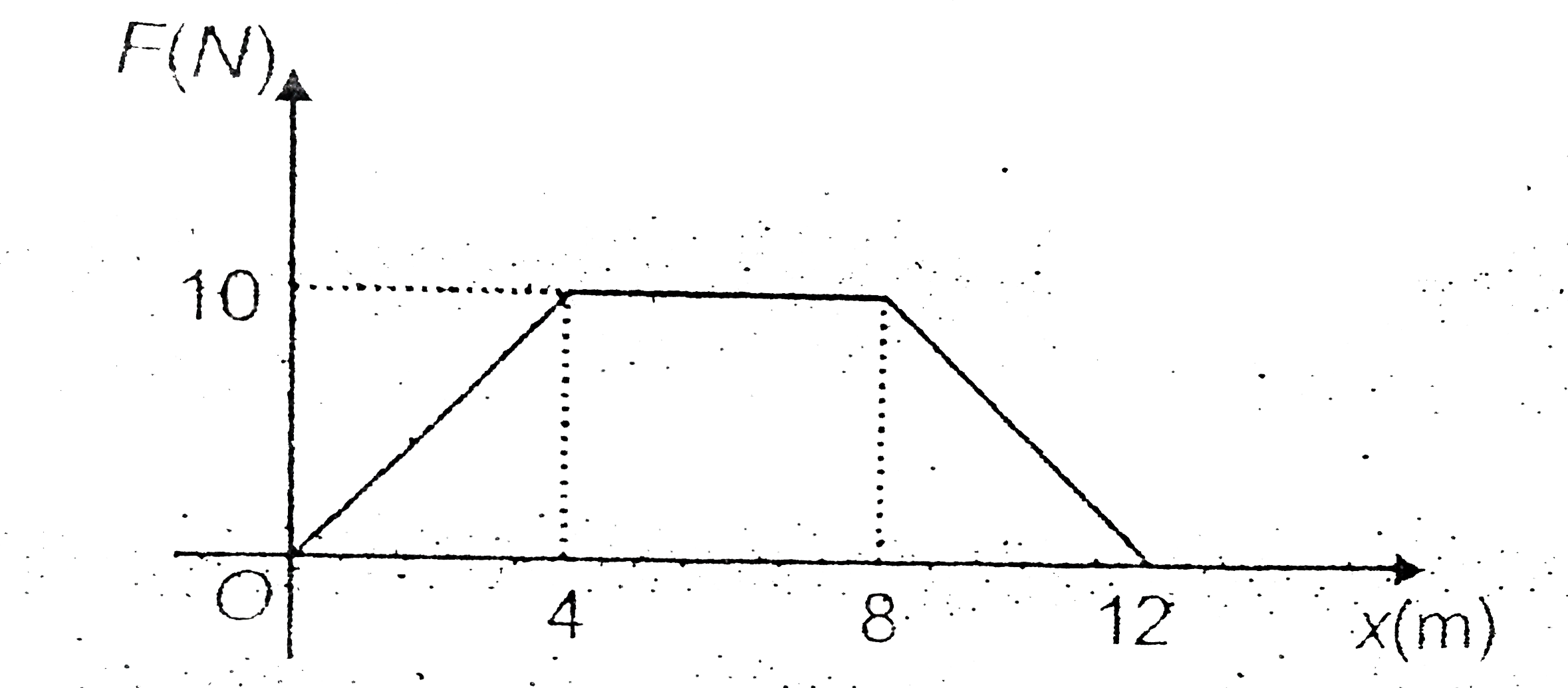A particle of mass 0.5kg travels in a straight line with velocity v=ax3/2 where a=5m−1/2s−1. What is the work done by the net force during its displacement from x=0 to x=2m?
m=0.5kg, v=ax3/2, a=5m−1/2s−1, W=?
Initial velocity at x=0, v0=a×0=0
Final velocity at x=2, v2=a×23/2=5×23/2
Work done=Increase in kinetic energy
=12×0.5[(5×23/2)−02]=50J
Topper's Solved these Questions
- WORK, POWER & ENERGYBOOK - CENGAGE PHYSICS ENGLISHCHAPTER - WORK, POWER & ENERGYEXERCISE - Exercise 8.3
26 Videos
- WORK, POWER & ENERGYBOOK - CENGAGE PHYSICS ENGLISHCHAPTER - WORK, POWER & ENERGYEXERCISE - Exercise 8.4
16 Videos
- WORK, POWER & ENERGYBOOK - CENGAGE PHYSICS ENGLISHCHAPTER - WORK, POWER & ENERGYEXERCISE - Exercise 8.1
25 Videos
- VECTORSBOOK - CENGAGE PHYSICS ENGLISHCHAPTER - VECTORSEXERCISE - Exercise Multiple Correct
5 Videos
Similar Questions
A body of mass 0.5kg travels in a straight line with velocity v=ax3/2 where a=5m/s2. The work done by the net force during its displacement from x=0 to x=2m is
View SolutionA particle of mass 2kg travels along a straight line with velocity v=a√x, where a is a constant. The work done by net force during the displacement of particle from x=0 to x=4m is
View Solution
Knowledge Check
A body of mass 0.5 kg travels in a straight line with velocity v=kx3/2 where k=5m−1/2s−1. The work done by the net force during its displacement from x=0 to x=2 m is
A1.5 JB50 JC10 JD100 J
A body of mass m travels in a straight line with a velocity v=kx3/2 where k is a constant. The work done in displacing the body from x=0 to x is proportional to:
View SolutionA particle of mass 0.5 kg is subjected to a force which varies with distance as shown in figure

1. The work done by the force during the displacement from x=0 to x=4andx=4 to x=12are respectively
(1)20J,40J(2)40J,40J(3)20J,60J(4)40J,80J
2. The increaase in kinetic energy of the particle during its displac ement from x=0 to x=12 m is
(1)20J(2)40J(3)80J(4)120J
3. If the speed of the particle at x=0 is 4 m/s, its speed st x=8 m is
(1)8m/s(2)16m/s(3)32m/s(4)4m/s
View SolutionThe velocity (v) of a particle of mass m moving along x-axis is given by v=α√x, where α is a constant. Find work done by force acting on particle during its motion from x=0 to x=2m :-
View SolutionA force F=(5+2x) acts on a particle in x direction where F is in newtown and x is meter. Find the work done by this force during displacement from x=0 to x=1m.
View SolutionA force F=(10+0.50x) acts on a particle in the x direction, where F is in newton and x in meter. Find the work done by this force during a displacement form x=0 to x=2.0m
View SolutionThe velocity (v) of a pariticle of mass m moving along x-axls is given by v=b√x, where b is a constant. Find work done by the force acting on the particle during its motion from x=0 to x=4m.
View SolutionA force F=a+bx acts on a particle in x-direction, where a and b are constants. Find the work done by this force during the displacement from x1 to x2.
View Solution
